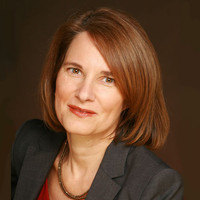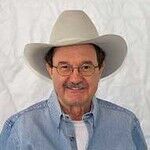It's not the same as being there.
We know that about the pandemic, but it's true, squared, of canceled Milwaukee. The Democratic National Convention, the ultimate American scrum scheduled this summer in Wisconsin, goes virtual for the first time in history.
The tight focus may cool Joe Biden down and warm Sen. Kamala Harris up. The old-school presumptive nominee is famously emotive; the California senator, his running mate, is disciplined and careful. In a safe space, perhaps she'll open up beyond the prosecutor persona.
Everyone knows Joe as the chatty neighbor over the fence. But this week is Harris' best chance to define herself, beyond her failed bid, with no Labor Day barnstorming at county fairs.
Let's consider the hidden human costs of a virtual gathering in plain English, not dollars and cents. The unexpected moments are the ones you remember best in love, life and politics, right? Surprises and shared experiences are the stuff of the best conventions — the Olympics of American politics.
Instead, every political speech this week is scripted, not even necessarily in the colorful lakefront city of Milwaukee, with its winged art museum. Biden, the presumptive nominee, is staying home in Delaware. Somehow, we'll survive without a balloon drop.
For journalists, a thousand conversations are missed, the sort we rely on to discern what dramas are going on behind the spectacle, the crowded sensory scenes.
A national political reporter told me in the Senate press gallery that he's covered political conventions since 1980, and this would be the first one he'd write about in his living room.
Glumly, he said, "You have everyone you want to talk to in the same place at the same time."
I know what he meant, feeling wistful for the exhilaration, conflicts, maneuvering, and the suspense of who's up and who's down on the political-stock front.
I've attended a couple of conventions myself. At the first, I was introduced to John F. Kennedy Jr. at a dreamy party he gave at the Art Institute of Chicago, outdoors on a soft summer night. An irreplaceable memory, virtually impossible online.
As days go by, social distancing and virtual events are becoming so normalized since the pandemic hit in March that we're starting to forget what life was like before.
From the 2016 Democratic Convention in Philadelphia, I remember the whirl arriving at 30th Street Station and the immediacy of chance conversations, running into old friends, meeting new ones.
One takeaway then was Michelle Obama's lofty phrase: "When they go low, we go high."
The first lady then, she brought the house down. Happy days seemed here again. But this time around, she delivered a searing, knockout speech against President Donald Trump by name: "Going high means standing fierce against hatred."
The dagger went deeper; times have changed. Michelle Obama's taped speech, as powerful as her delivery was, was not a live encounter. If it had been, it would have set the place on fire. Speeches are, by nature, public things, not private.
The nominee in 2016, Hillary Clinton looked for all the world like the first woman president, shining in a white suit — the color of women's suffrage. But close to the convention floor, it was hard to miss the angry rumble of Sen. Bernie Sanders supporters as a counterpoint.
That's the thing you lose in translation: reading the room.
Four years later, Sanders gave an intense virtual speech Monday night, emphatically endorsing Biden. "The future of our democracy is at stake," he declared.
Then, you ask, why couldn't Sanders do the same for Clinton? Did the crusty Vermonter's ego deliver the margin of victory to Trump? Thanks, Bernie, for doing the right thing late in the game, with a world of hurt spilled on your hands.
The late Sen. Edward Kennedy gave the most rousing speech of his life at the 1980 convention after surrendering in a similar feud with President Jimmy Carter: "The dream shall never die."
Chicago in 1968 captured all of the Democratic anguish of that year, riven by assassinations, division and anti-Vietnam War protests. Conventions often build party unity. The truth is they also open wounds.
Let's say it's a wash not to meet in Milwaukee. You never know what will happen at a convention.
Jamie Stiehm can be reached at JamieStiehm.com. To read her weekly column and find out more about Creators Syndicate columnists and cartoonists, please visit creators.com.






View Comments